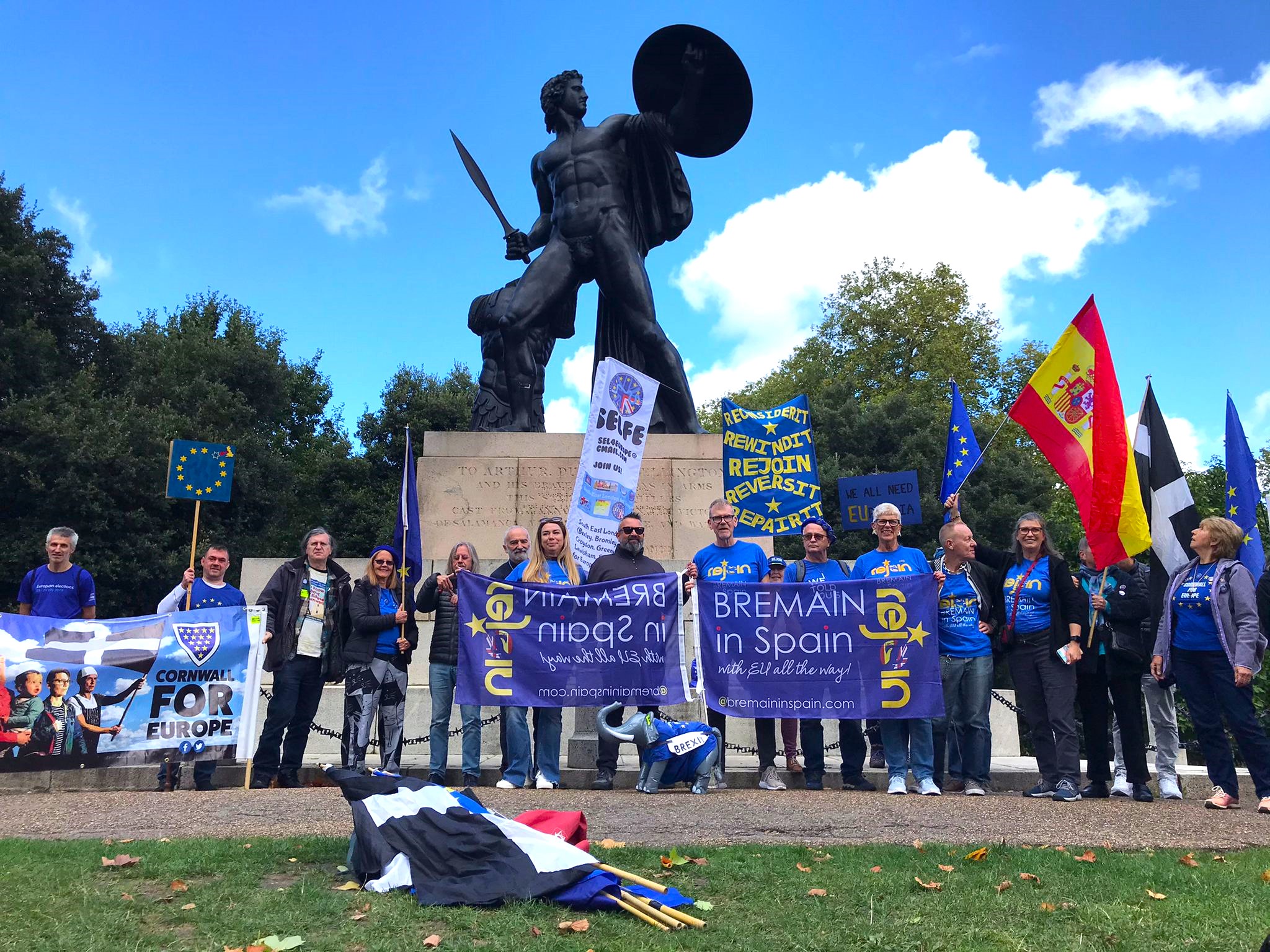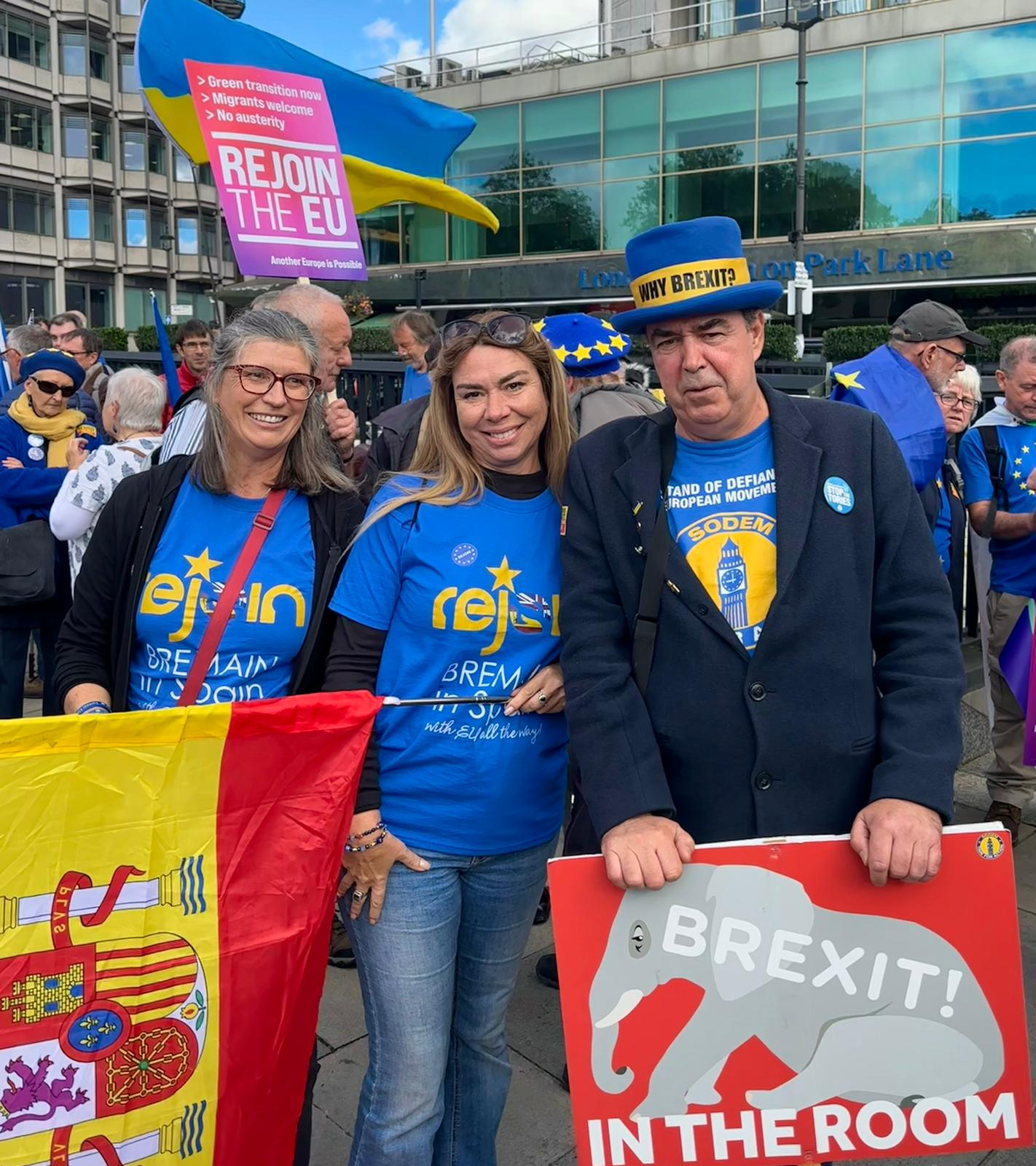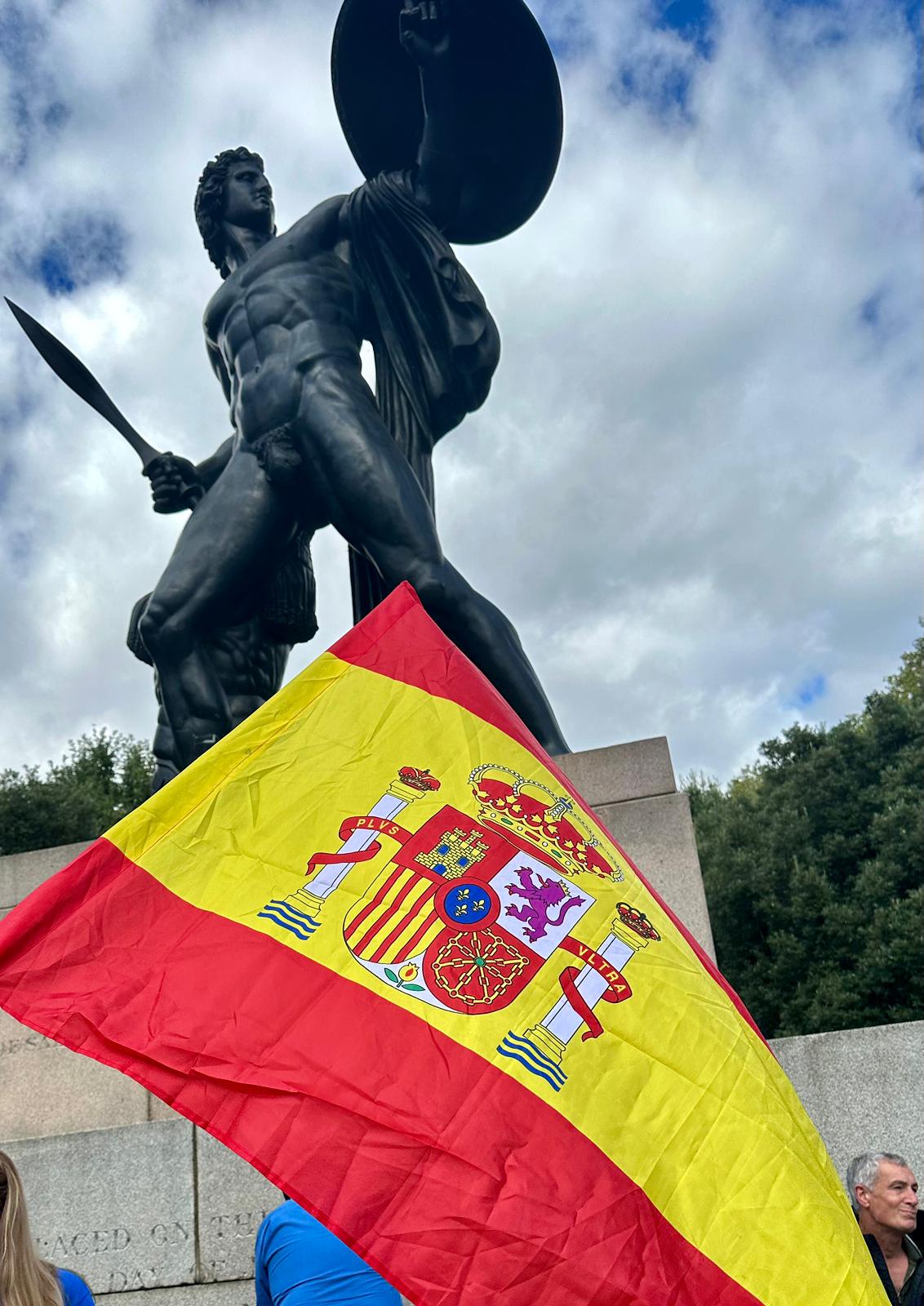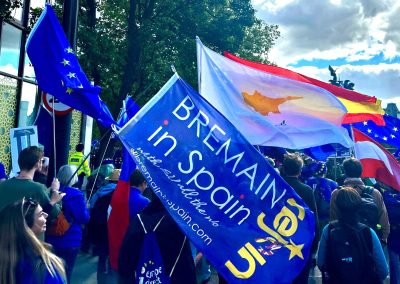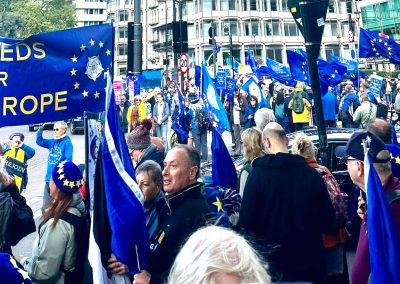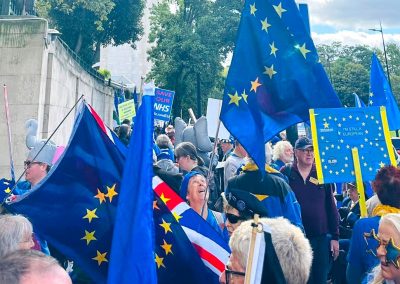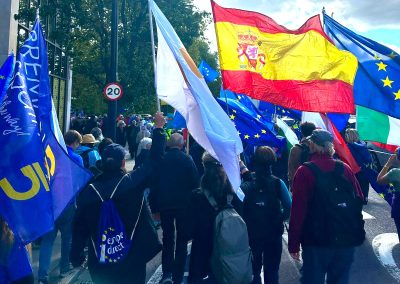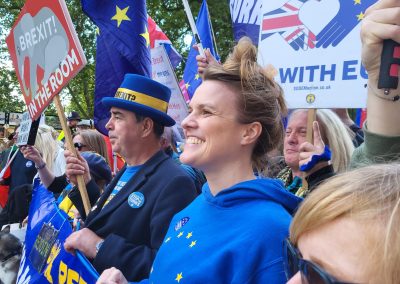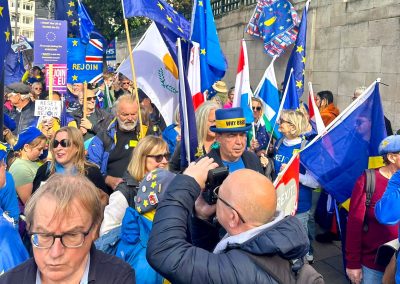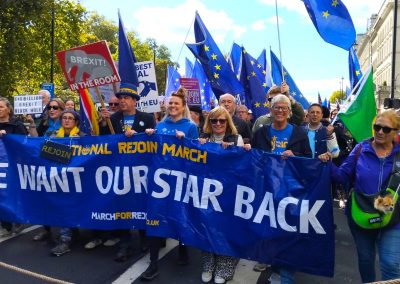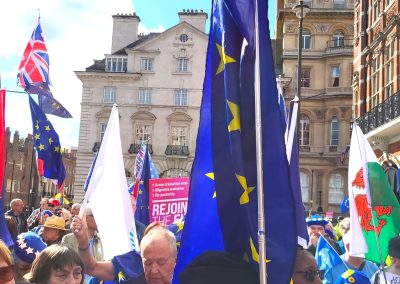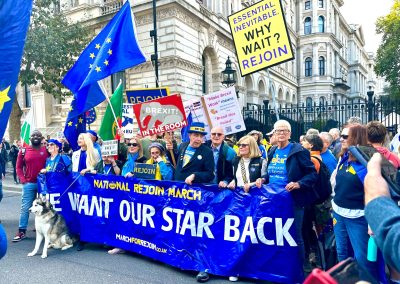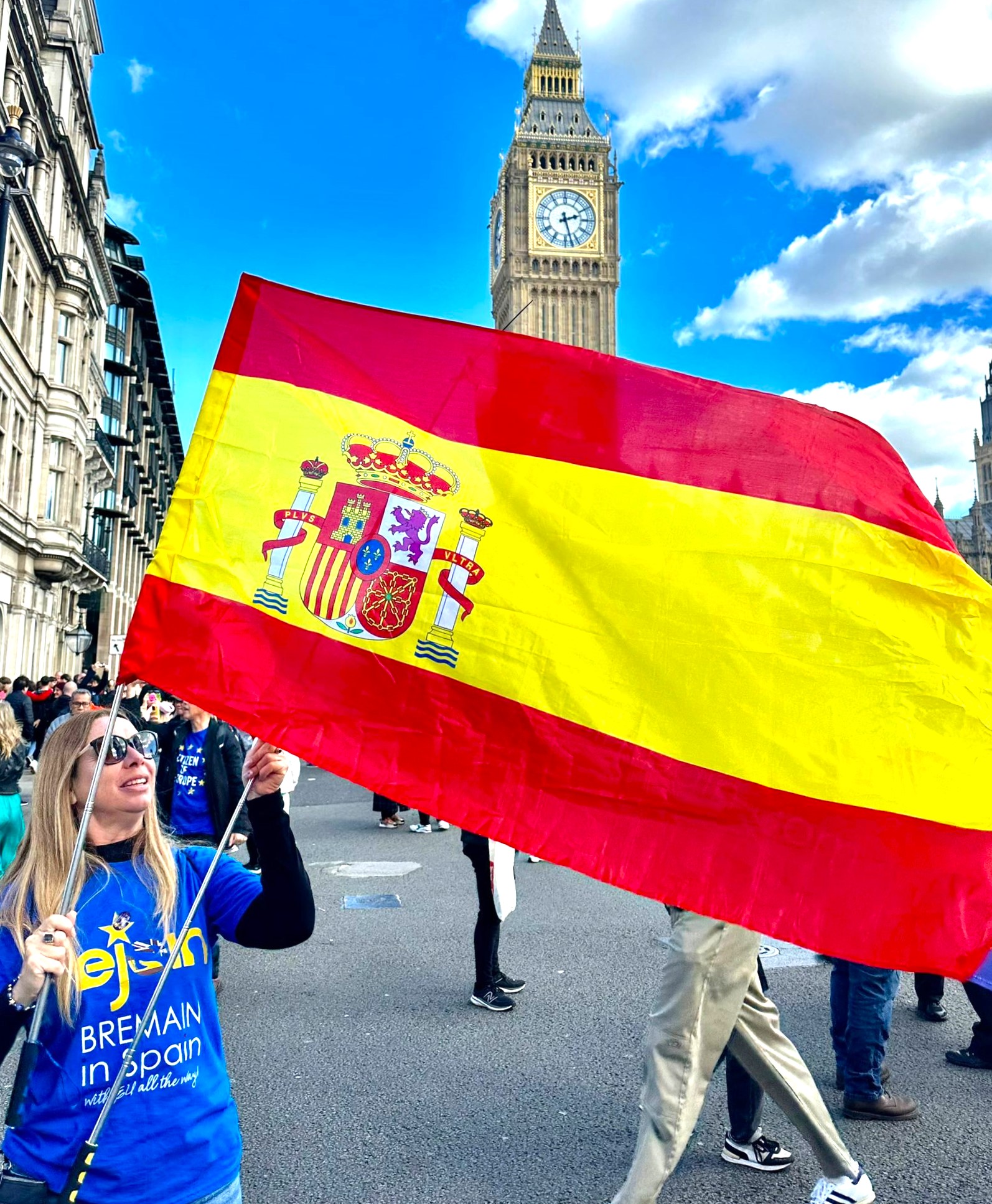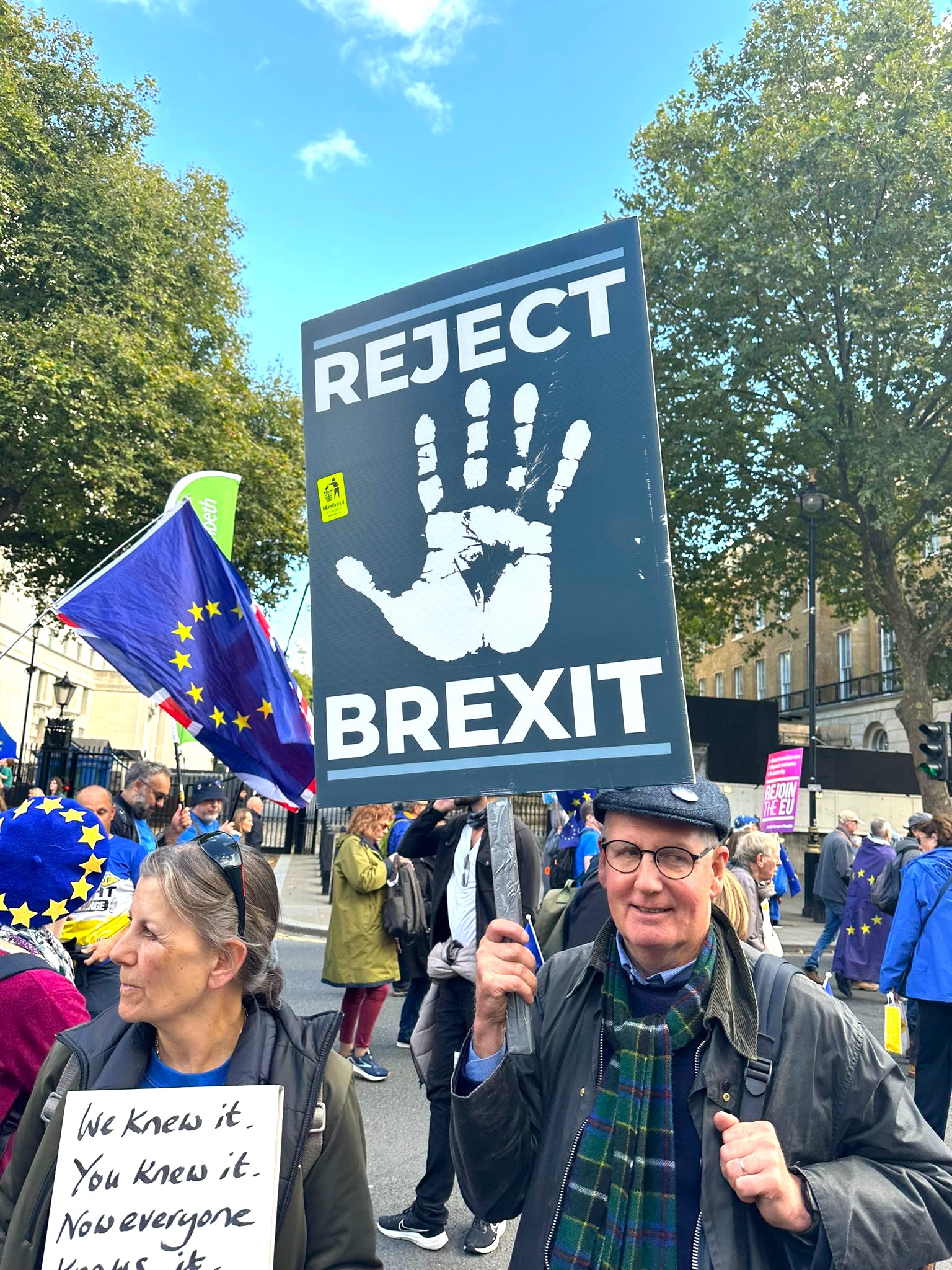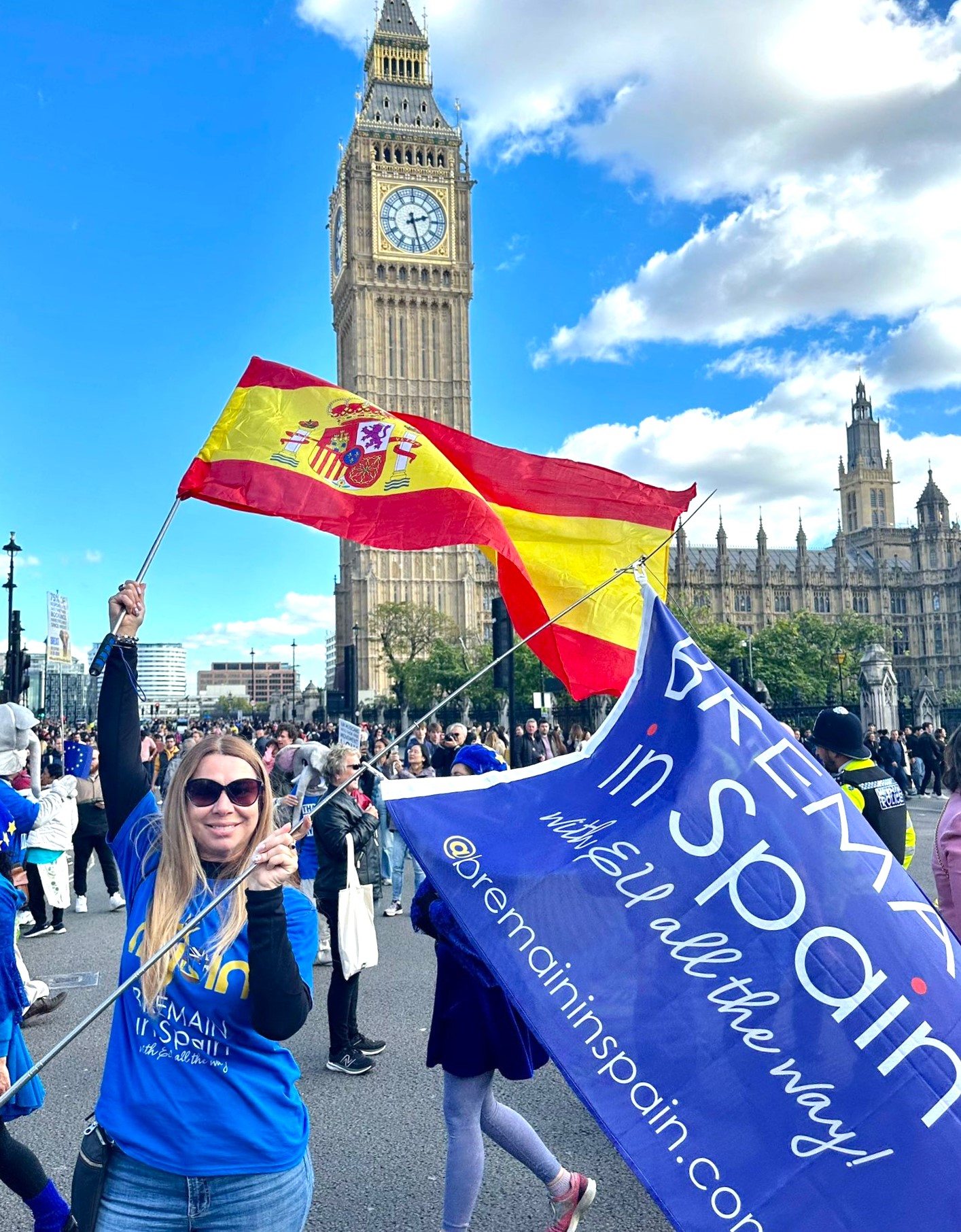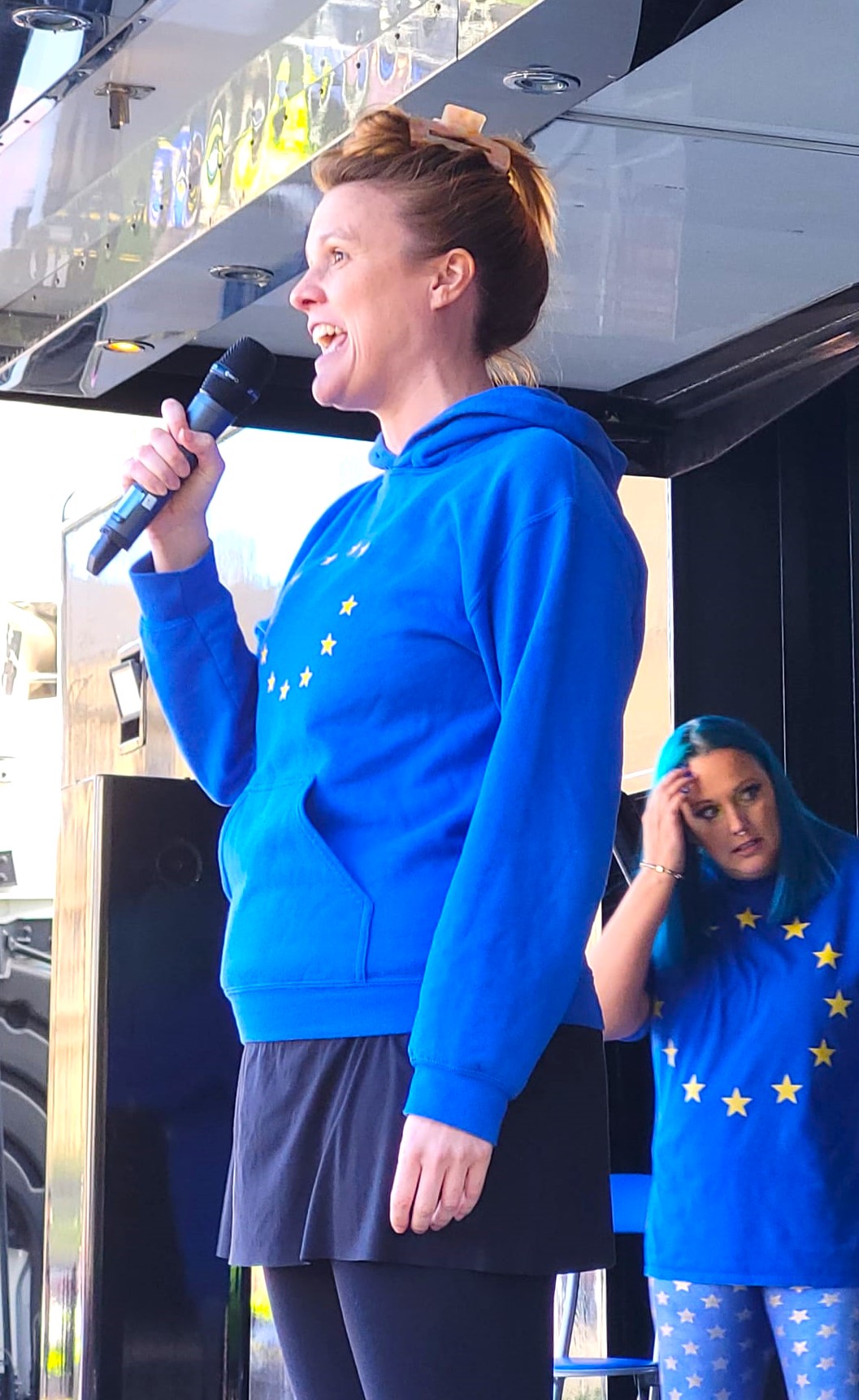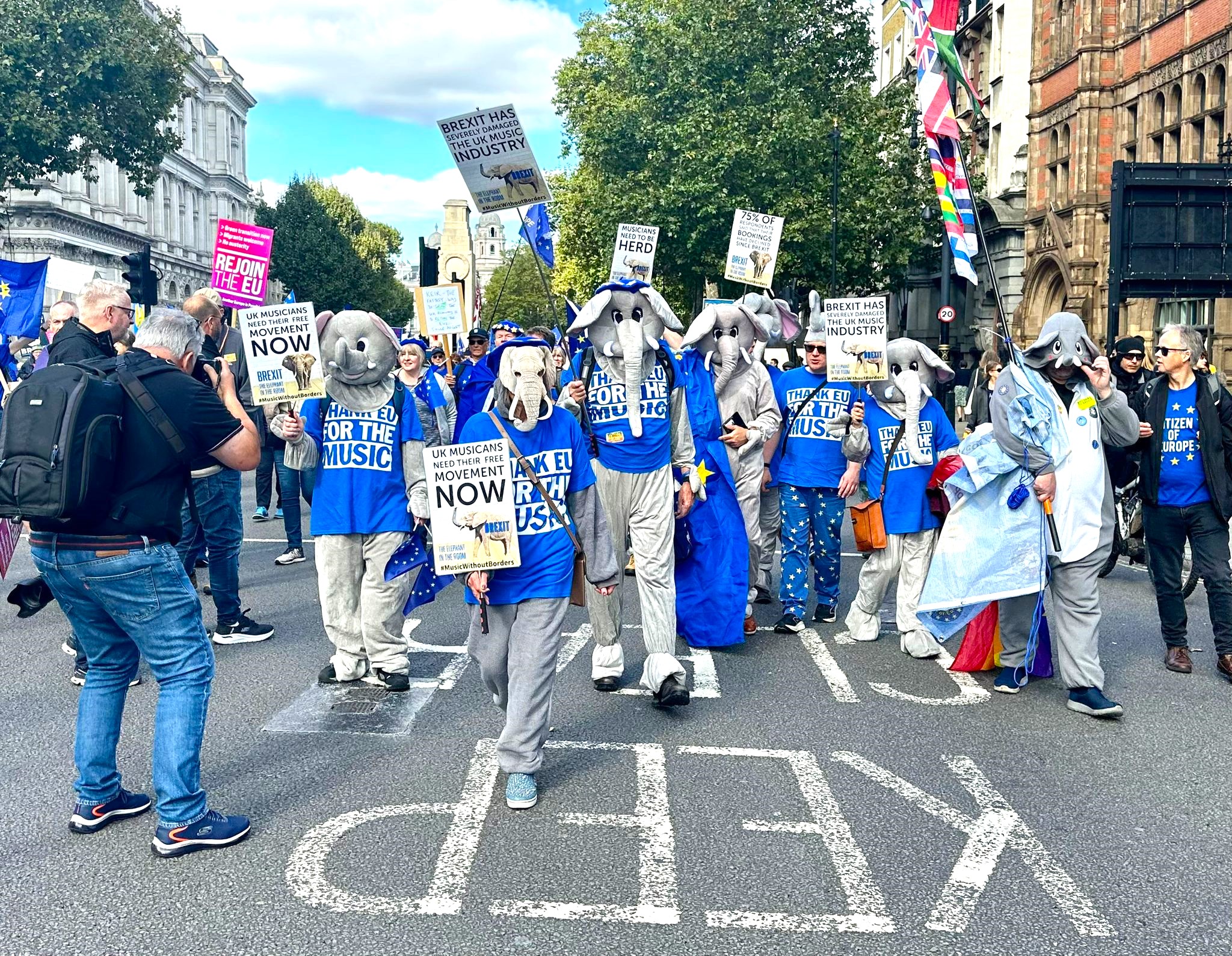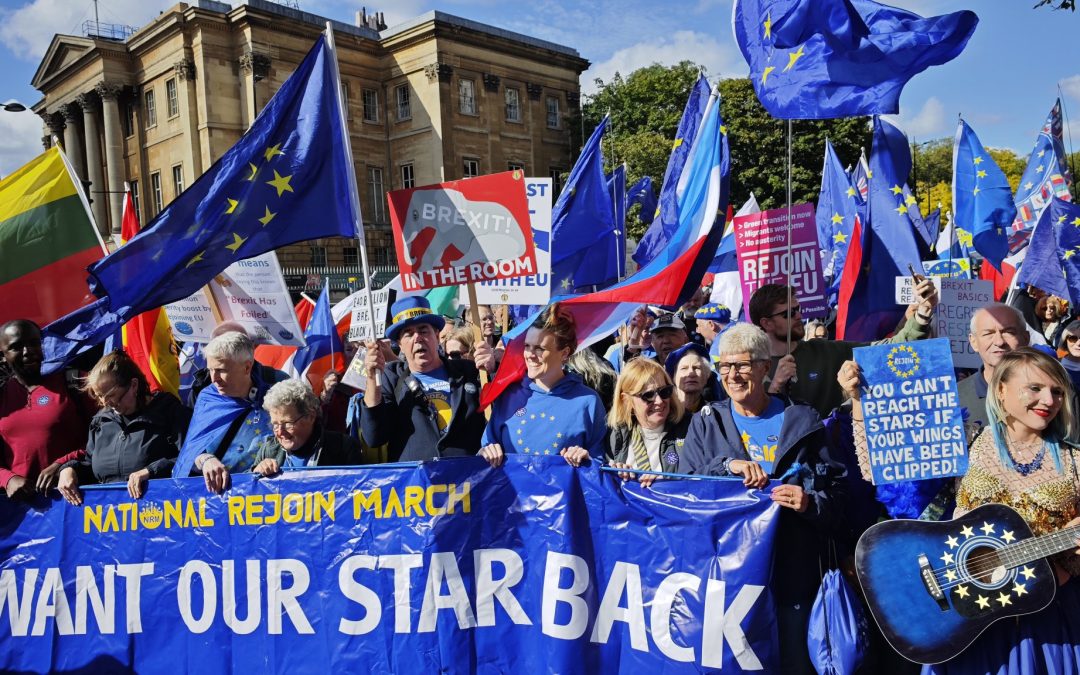


Bremainers Ask… David Henig
A leading UK authority on international trade policy, David Henig is Director of the UK Trade Policy Project at the European Centre for International Political Economy (ECIPE), where he examines the economic and trade implications of Brexit and broader UK policy. He writes regularly for Borderlex, serves as an Expert Adviser to the House of Lords International Agreements Committee and advised the former UK Trade and Business Commission.
Until March 2018 David was a trade specialist in the UK Government, including 3 years on TTIP talks, establishing the Department for International Trade after 2016 and coordinating work on major international bodies such as the OECD and G7.
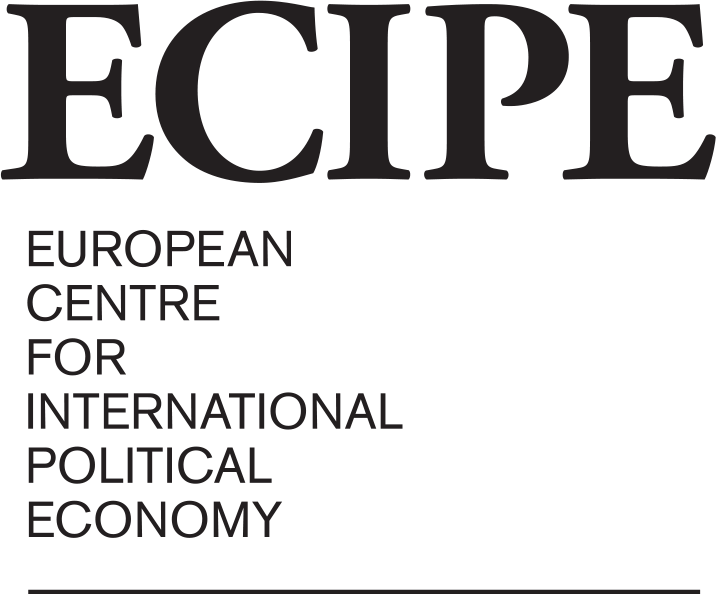
David Eldridge: What should be the top priorities for the new government?
Behaving like a normal, competent government would be a good start across a lot of policy areas. Listening to a broad range of experts rather than just those sharing a narrow ideology would be an improvement. There are so many interlinked issues of public services and the economy that need fixing, and upping the rate of growth is so important to tackling them. Regulatory stability would be a great place to start: rather than creating uncertainty in goods, at least we should link to the EU. This would provide an incentive for investment. Removing barriers to trade in the neighbourhood is complementary to this. Then there are the sensitive domestic issues directly linked to growth, of which overseas students is the largest – we really should be taking advantage of being an attractive place to study, not complaining that people want to come to the UK.
Steven Wilson: How sustainable is the prospective new Labour government’s attitude towards Brexit?
In the first instance, seeking small steps towards improving the EU relationship isn’t just sustainable, it is essential. Our negotiating legacy since 2016 is toxic in Brussels, and there is a need to build trust that the UK will actually negotiate in good faith and keep commitments. Within Labour’s red lines of not rejoining the single market or customs union there is more that can be done beyond the manifesto commitments of a Sanitary and Phytosanitary (SPS) deal, professional qualification recognition (actually very hard to achieve), and help for touring artists. Joining the pan-Euro-Med convention on rules of origin will help supply chain participation, and the EU wants a youth mobility scheme. A security agreement seems very likely. There’s more to be done on energy. Start to put all this in place first, and then I think there will then be a conversation on whether that is sufficient, or we need to revisit red lines or the referendum. I don’t think there is a way to short-cut this process.
Anon: Without rejoining the single market, does Labour have any hope of turning around the UK economy?
All countries have domestic policy choices that affect their trade and therefore economic performance, and the UK deciding to put up barriers to nearby markets is a handicap, but it doesn’t necessarily have to be fatal for economic performance. For example, there are sectors that are less affected, such as financial services, education or defence, and large companies are able to overcome barriers more easily. There is a scenario where we focus more on these to limit the economic damage, but of course there are also issues with these areas. We could also promise investors a level of stability while staying outside the single market, such as on regulation, and combine this with being generally more open to outsiders and neighbours and striking as many deals as we can across Europe. However, in general we are certainly making all of this harder for ourselves by giving our companies higher barriers to overcome than their counterparts in other countries.
Ruth Woodhouse: In terms of trade deals, to what extent do you believe Keir Starmer will, or should, give greater priority to negotiations with the EU than with the rest of the world?
Thanks to replicating trade deals that we were a party to as EU members, we have good coverage around the world. The priority therefore has to be to improve what we have in our own neighbourhood, not just with the EU but also Switzerland and Turkey, where we have active negotiations. By and large Free Trade Agreements alone do not significantly shift the economic dial, as they mostly benefit large commodity exporters facing high tariffs, which isn’t where our trade specialisms lie. What we should be looking for is deeper arrangements such as regulatory alignment and mutual recognition, plus whatever we can on services, and this is more likely with others in Europe. We should also stop fixating on a US trade deal, even before they were withdrawing from trade, they did not tend to give other countries many advantages.
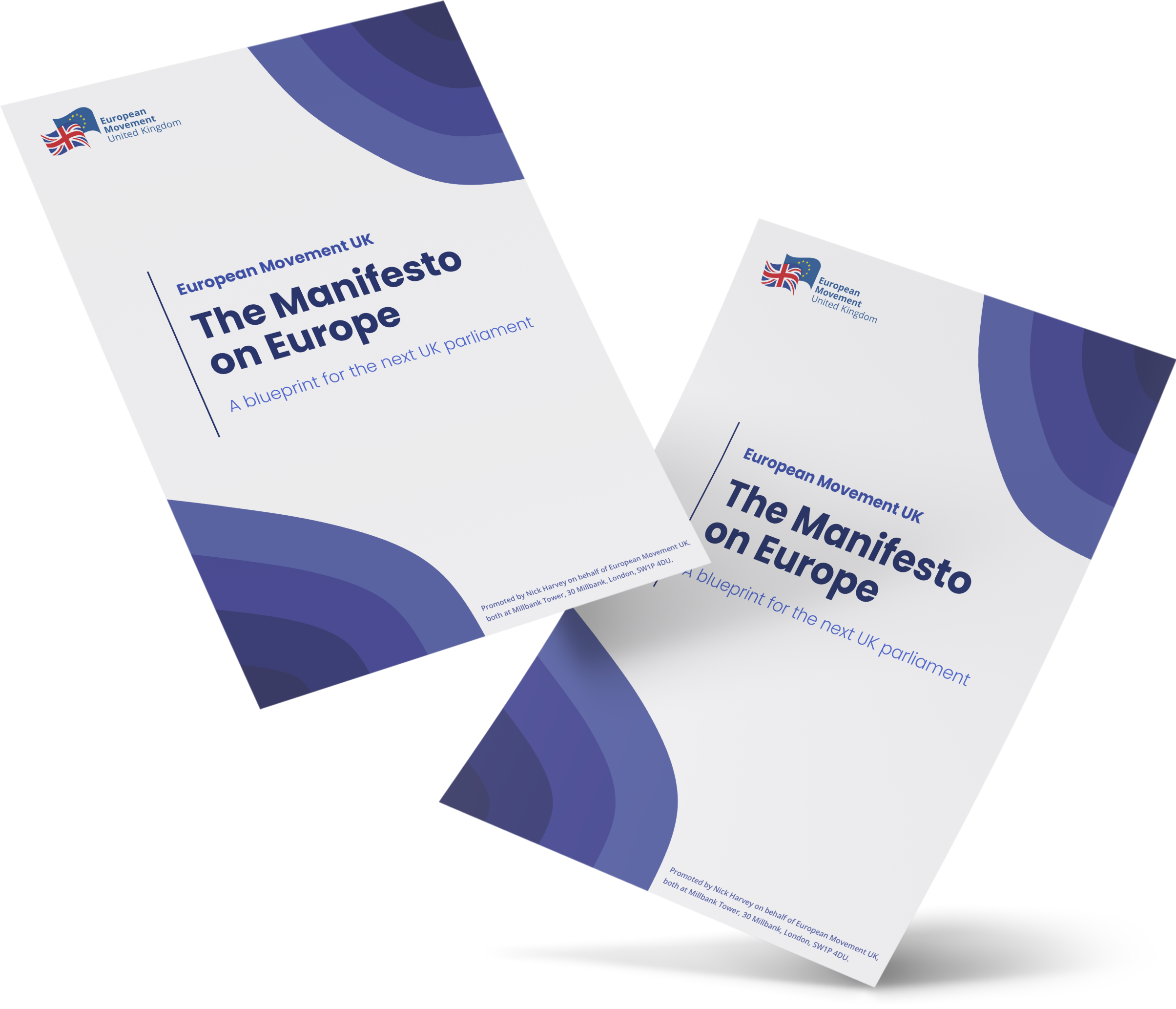
Lisa Burton: European Movement’s newly released ‘Manifesto on Europe’ asks the government to implement a detailed assessment of the impact of Brexit. What did you think of the document overall?
With the exception of the commitment on a detailed assessment of Brexit, which I don’t think is best carried out by government, other suggestions in the Manifesto seem broadly sensible and consistent with the general idea of improving relations as the obvious next step. Membership of regulatory agencies is a particularly sensible step, and builds upon the success of the UK remaining within the European standardisation community, an unheralded but really significant achievement for the British Standards Institution (BSI) which required extensive work with the UK government and various EU bodies at a time when relations were not good. I think such bodies will have to decide in the next few years whether to push outright for rejoining the EU, or to seek either a Customs Union or single market as a ‘halfway house’. I think there are drawbacks with all options but, until that debate can be had, then Brexit will continue to be something of a hidden subject.
Matt Burton: How far could regulatory alignment with the EU go in reducing trade friction at the borders?
By itself, regulatory alignment does not reduce trade friction at borders, though it has an immediate benefit in that companies trading between the UK and EU do not have to meet two sets of regulations. Committing to similar regulations does open up the possibility of reduced or eliminated barriers subject to negotiations on mutual recognition agreements, which for food and drink products, which are always subject to the greatest level of inspections, could be significant. There isn’t a standardised form of such agreement, and hence it is hard to say exactly what may be included, but in general it should at least be possible to remove some frictions. This isn’t, however, an automatic process, and to even start such a negotiation there needs to be trust that both sides are committed. In general, industrial goods are subject to fewer checks than agricultural ones, but reducing barriers will still be helpful.

Celebrating EUROPE DAY – Thursday 9 May 2024
Europe Day is an annual celebration, commemorating peace and unity across Europe and marking the anniversary of the historic Schuman declaration of 1950.
Schuman’s proposal set out his ideas for a new form of political cooperation across Europe that would make war between neighbouring nations unthinkable. It was the beginning of what we now know, and value, as the European Union.
In Spain, and most EU countries, the EU flag is flown every day on public buildings, together with the Spanish, regional and local flags. It is a symbol of pride in our membership of the EU, and a daily reminder of the benefits of being part of the European family.
During the run up to Europe Day Bremain in Spain members and supporters shared their images of the European flag flying on buildings throughout Spain and Europe.





. . . . May 9th 2024 . . . .


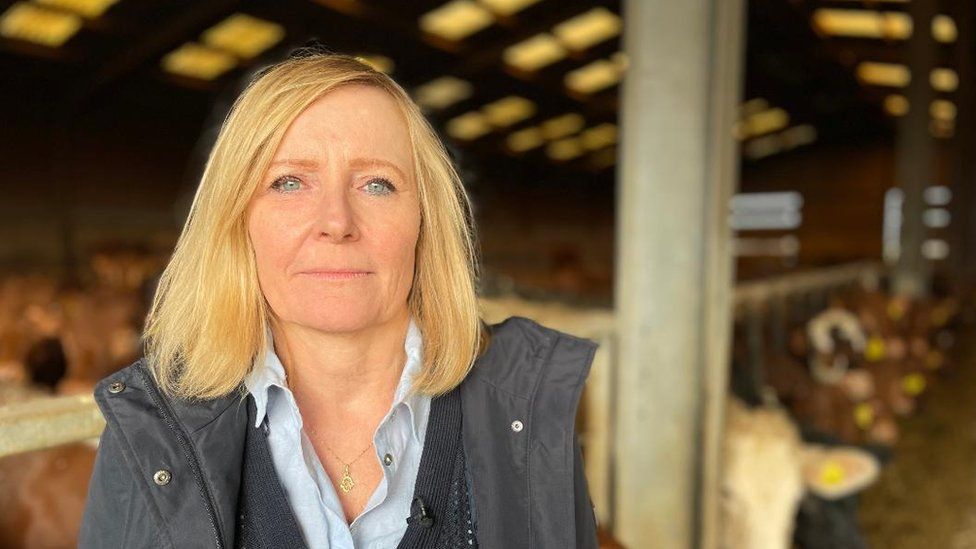
Bremainers Ask… Liz Webster
Liz Webster is the founder of Save British Farming, established to challenge the impact of Brexit on British farming and to oppose the decline in British food, animal welfare and environmental standards. Liz was also the lead plaintiff in the 2017 Article 50 court case vs. the Secretary of State for Exiting the European Union. Liz is actively campaigning to rejoin the Single Market and is a regular anti-Brexit commentator in the media.
Lisa Burton: Apart from rejoining the EU, what policy and legislation would you like to see from the current/future government to help farmers and encourage more food production?
I’d like to see a return of a Resale Price Maintenance Act (the Tories repealed it in 1964 when Tesco was beginning to expand). This stops middlemen and supermarkets from paying producers less than the cost of production. They have a similar mechanism in France. In 2020, the Tories decided to no longer recognise food as a public good and instead made the environment a public good. This means farmers now receive public money for environmental work/projects. However, farmers believe we should produce food AND look after the environment.
Additionally, and worryingly, this new policy is ensuring there are more factory farms, which are also getting larger. Paying farmers to park-keep whilst enabling lower-standard food production/imports to increase is greenwashing! We would like to see a return to food being seen as a public good.
Ruth Woodhouse: Has Labour outlined its plans for supporting farmers if it gains power at the next general election?
Labour have been clear about their Brexit plans for securing a veterinary agreement. I see this as anchoring the Brexitanic. Keir Starmer (in Canada last September) disclosed they don’t want to diverge or lower standards. This is a clear indication that Labour are committed to work for closer alignment with Europe. In addition, Save British Farming have been asked to give evidence to the Rural Policy Group APPG, and to sit on a working panel for a Labour think tank to make policy which will be supplied directly to the Shadow Cabinet. This has given us huge confidence and optimism after 14 years of governance which has been anti-farming.
Over the last four years, Shadow Farming Minister Daniel Zeichner has worked with us, so we feel optimistic he is listening to us. No government survives a food crisis and for sure the Tories have done their best to cook one.
Michael Soffe: There appears to be a widespread misconception that the farming community voted for Brexit. If that is the case, is there now a feeling of regret? If the contrary is true, how do you combat this misconception?
The farming vote on Brexit was split and it’s actually impossible to work out the exact vote. The farming community is actually very diverse, from livestock market employees to farm managers, labourers to farm owners and tenants, as well as suppliers of agricultural goods. Harper Adams University did some research on this and found the vote was actually more about geographical location and education level/age.
The Leave campaign successfully harnessed farming and fishing, and our Union Jack, for their campaign: it’s important we fight to get this back from them. Not all fishermen voted Brexit either!
It is very disappointing that remainers attack Brexit voters and say silly things like, “You reap what you sow”. Destroying British food sees the poorest suffer hardest. It also doesn’t help bring us together by blaming voters. We need to find a place where we agree to find solutions, not blame people – of course we can blame the Tories and Farage, etc! But ultimately Brexit is a war on our food, freedoms and protections, and that is a war on us all.
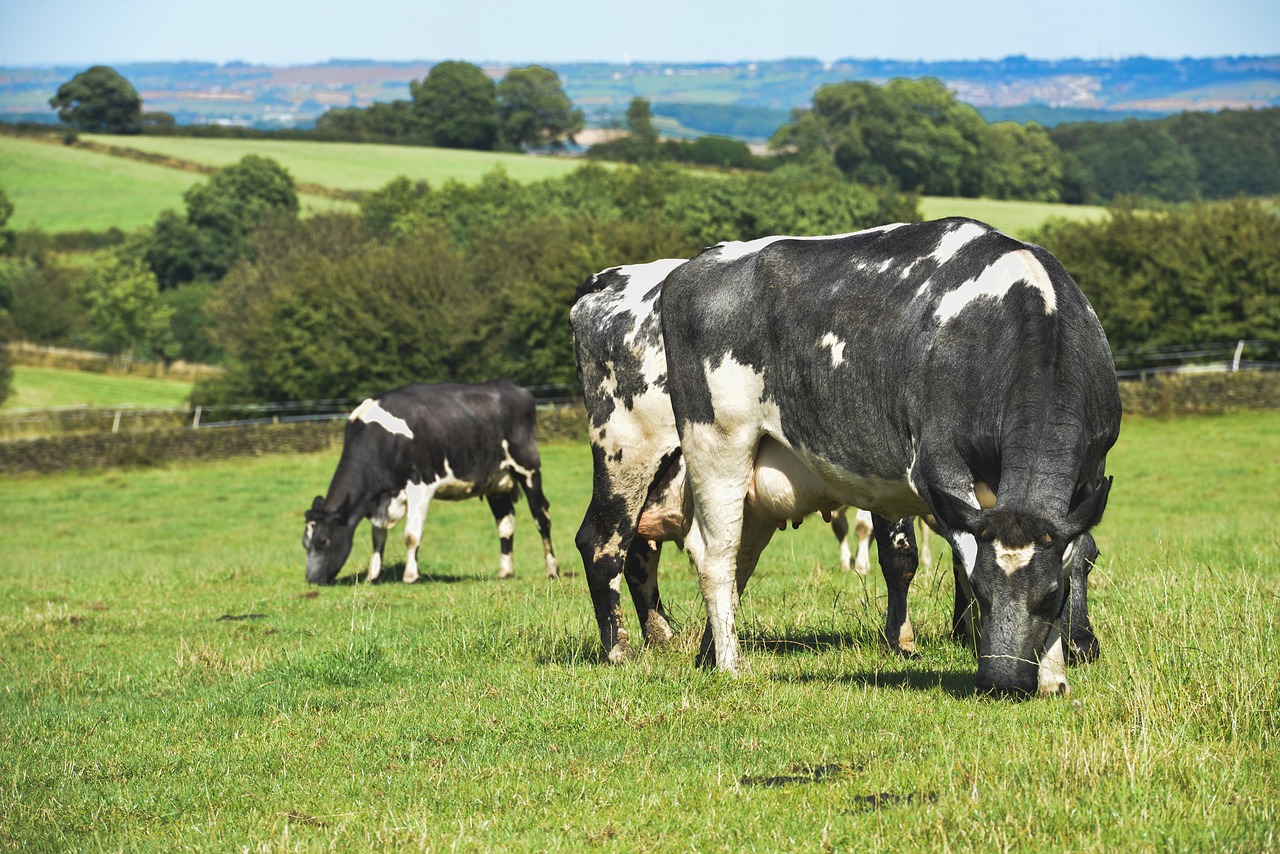

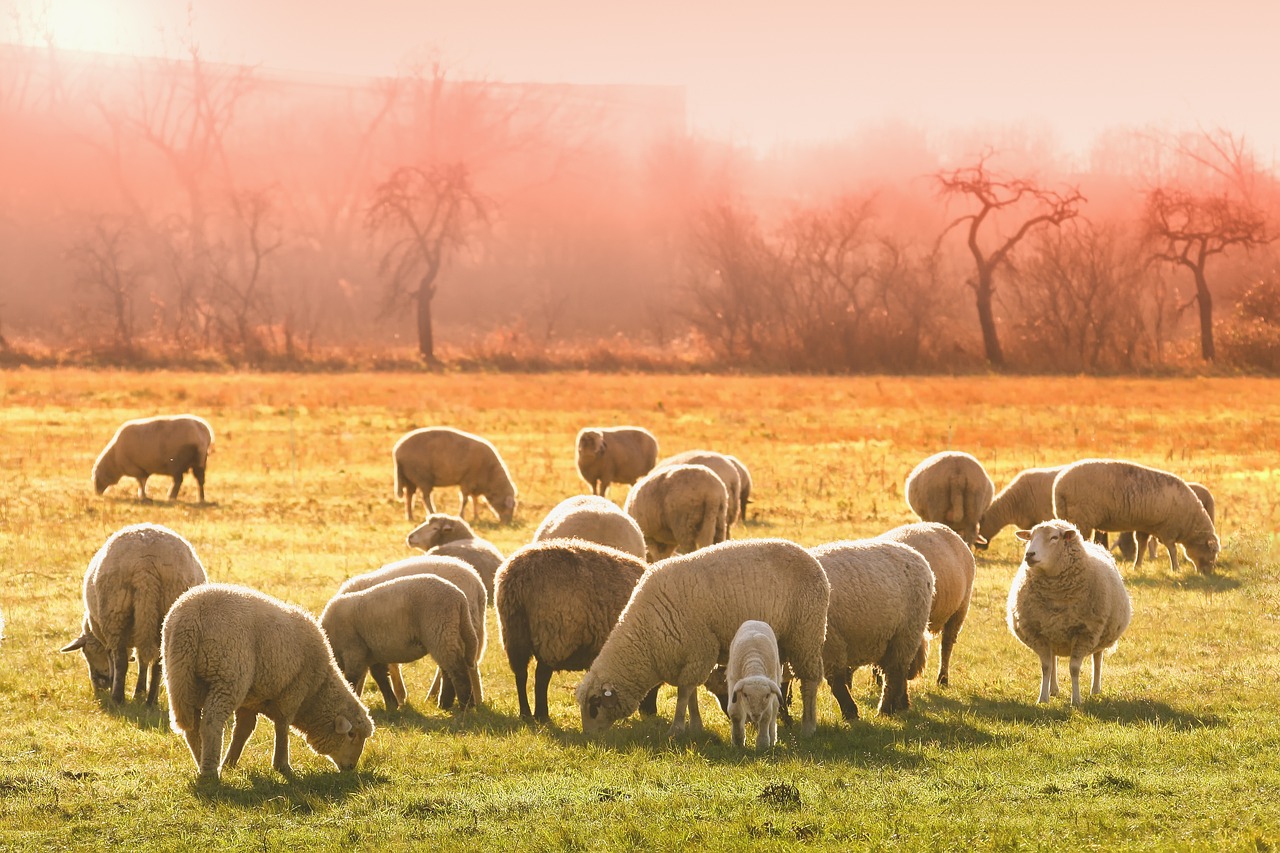
Matt Burton: Why do you think British Farmers aren’t protesting on the scale of our European neighbours?
It’s not in the British psyche to protest, we are a nation of cap doffers. British farmers came to rely on the French to push back against bad trade deals and policy. We should have followed the French and had a revolution!
Steve Wilson: In the Save British Farming petition, you mention a number of demands: fair trade, protecting standards, food labelling, labour shortages, funding and sustainability. Which of these is the most pressing and how could the situation be eased in the short-term?
All of these are a priority for British farming, fish and food and without doubt we need to get rid of trade barriers with the EU just to ensure we have enough food. Food production in the UK (particularly England) has collapsed and the Ukraine war and recent weather events have worsened this. The only way to guarantee food supply is to work to get back in the EU asap. I have communicated this to Labour and I believe others have too. Longer term for British farming we need a food plan and a government which values British food (this includes fishing). A country which cannot feed itself does not have sovereignty!
Anon: How do you deal with a lack of understanding by the public re Brexit-related issues such as trade barriers, new import charges, “not for EU” labelling etc., & would you say that the farming community is, on the whole, better informed in this regard?
The farming community is not well educated generally. Most are older and have insular lives. They are learning, and with our campaign we have to tread a careful line on Brexit. This is likely why I appreciate Starmer’s difficulties as he tries not to trigger Brexit defenders! Our last demo definitely cut through and we feel we are making progress, but I am also grounded about the fact that the hard yards begin when Labour get into government. If the Tories win again, we accept the fight will be lost, because they won’t and don’t respond to what the people want.
Susan Scarrott: In July 2020 the Tories voted against protecting food standards for imports in post Brexit Trade Deals. Do you feel this was a deliberate attempt to undermine British Farmers to open the door for cheap imports?
Yes, most certainly the Tories want to lower standards here and also in the EU. They are largely working for the IEA who are funded by big USA corporations. In September 2020, I met with Henry Dimbleby who was in charge of writing the failed food plan. I asked him why he voted Brexit. He replied, “Oh that’s easy! Because post war policy has led to over intensification and over population.” I believe the drive for Brexit was always about allowing global corporations e.g. Cargill/Avara control of our food supply, leading to a total loss of control. It is maddening that Brexit was won on a false prospectus. People thought they were voting for more Britishness and more control, when the opposite is true.
Derek Ironside: Is there now a consensus in the British Farming Industry that feel it would beneficial to rejoin, at minimum, the Single Market?
The farmers who voted remain absolutely want to rejoin the EU! Many who voted Brexit don’t want to talk about Brexit, but are happy to moan about what it’s doing. We don’t want to rub their faces in it and don’t need to at this stage. We just need to lead them to support our efforts to build pressure to ensure this happens. We don’t need a Spanish inquisition type situation where people are forced to become blue flag wavers. Being smart about this is how we will win!
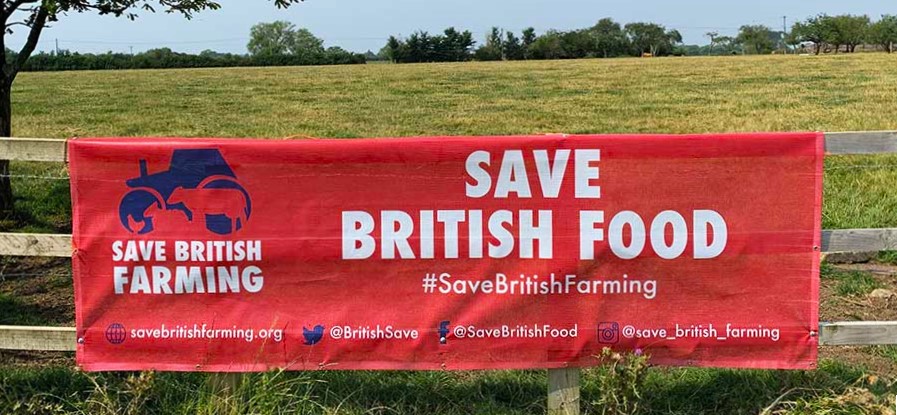

The EU’s Youth Mobility Proposal
Our leaders may have been too hasty in rejecting the EU’s proposed youth mobility scheme so soon – it offered mobility, not freedom of movement.
On Thursday 18 April, the European Commission proposed a new scheme allowing improved mobility for young people between the EU and the UK. Within 48 hours, the UK government had already rejected the proposal saying there was no interest from the UK side. The British public, and Britain’s youth in particular, may beg to differ.
https://twitter.com/EU_Commission/status/1780901597649707162
The youth mobility proposal
In their recent press release, the commission outlined plans to “rebuild bridges between young Europeans on both sides of the Channel”. The proposal – which still needs approval by the EU Council – aims to offer visa-free exchanges for young people. The first of these council discussions – expected to result in a “qualified majority in favour” from member states – takes place on Friday 26 April.
According to the commission, post-Brexit immigration rules have resulted in “decreased numbers of persons exercising mobility between the EU and the UK”. Young people have been “particularly affected” by the removal of the benefits of “youth, cultural, educational, research and training exchanges”.
The objective of the proposed scheme is to “facilitate youth exchanges, making it easier for young EU citizens to study, work and live in the UK, with reciprocity for young UK nationals in a member state”. The commission also hopes the scheme “could be usefully supported by a parallel discussion” on Erasmus+, the EU’s student exchange programme.
The scheme would be available to 18–30-year-old EU and UK citizens and would offer the opportunity to work, study and live in the UK and EU respectively for up to four years. Those wishing to participate would need to meet certain conditions in order to qualify (age, length of stay, conditions of eligibility, etc) – that’s assuming, of course that future negotiations with the UK prove successful.
The scheme is likely to have been welcomed by industries suffering severe staff shortages since Brexit. UK Hospitality, who have been calling for the expansion of youth mobility schemes said the agreement would be a “huge success”, to the benefit of hospitality, tourism, live music and events.
Lord Kinnoull, chair of the House of Lords European Affairs Committee, which proposed such a scheme, welcomed the proposal as “greatly to the mutual benefit of both parties and to the youth of Europe” – an opinion shared by very few in Westminster.
1/ Brexit law- proposal to negotiate a youth mobility treaty between the EU and the UK
Press release – note basic rule would be a 4-year stay for 18-30 year olds who meet the conditions https://t.co/Z5xr2sUj4q
But wait, there's more pic.twitter.com/TfKuozRxrB
— Steve Peers (@StevePeers) April 18, 2024
Mobility is not freedom of movement
Despite what many press headlines are suggesting, the EU is not advocating a return of freedom of movement with the EU/UK, even for the young. While the proposal would certainly enable young people to have improved mobility, there are limitations. For EU citizens, who only lost freedom of movement in the UK thanks to Brexit, the scheme represents an important step forward.
However, the benefits of the scheme for young Britons would be limited to one designated country, despite them having lost their mobility in 27 EU countries, as a result of Brexit. So, while British participants would have more freedoms than at present, those freedoms would not allow movement between EU countries. They would, though, still allow for Britain’s youth to work, study, live in Spain or France, Cyprus or Italy, or any other EU country.
The other major difference, of course – and one that some commentators are describing as ageist – is that anyone over 30 would be excluded.
UK government reject the proposal
With the exception of a few Brextremists – for whom closer EU ties of any kind are regarded as a betrayal of Brexit – the UK government was initially said to be “open” to discussing a deal with the EU. That supposed openness didn’t last very long.
Just two days after the proposal was announced, Rishi Sunak rejected the proposal outright. A government spokesperson stated, “we are not introducing an EU-wide youth mobility scheme – free movement within the EU was ended and there are no plans to introduce it”. The main objection seems to be against an EU-wide approach – the government preferring to make bespoke deals with individual EU countries of their choice. It would seem that the Brexiter appetite for ‘cherry-picking’ has not gone away.
It would also appear that the government is willing to ignore the wishes of Britain’s youth, or maybe they’ve already given up any hope of appealing to anyone under 30. A recent survey by J.L. Partners showed that “the age at which Britons are more likely to choose the Tories over Labour opposition has risen to 70 from 39”. This latest government decision seems unlikely to change any young minds about which party best represents, or doesn’t, their own needs and wants.
https://twitter.com/pmdfoster/status/1781090554111053893
Labouring the point
Anyone expecting a more positive response from the likely next government, will have been disappointed by Labour’s reaction. Initially, Labour were said to have “no plans” to negotiate such a mobility deal, citing the fact that, in their eyes at least, the deal “was synonymous with freedom of movement”.
Just 24 hours later, Labour said they would “seek to improve the UK’s working relationship with the EU within our red lines – no return to the single market, customs union or free movement”. A spokesperson also noted that the scheme had only come about because the UK government had been reportedly approaching individual EU member states.
Despite the vast majority of the British public being desperate to see the back of the Tories, many are becoming increasingly frustrated with Labour’s stance on important issues, especially Brexit. While we may understand Labour’s need to make the Tories own Brexit, we also appreciate the importance of focusing on winning the election. Us pro-Europeans may be willing to bite the bullet in order to ‘get the Tories out’, but only up to a point.
What many of us fail to comprehend is Labour’s insistence that “Brexit is settled” and/or can be made to work. As for the party’s red lines, not only are they totally unnecessary, but they are also widely unpopular with the public, and risk turning supporters away. We can only hope that, once in power, Labour will be willing to reconsider their Brexit position, when the realities of running a failing economy present themselves.
Support from the EU
One thing we can be sure of is fair treatment, bold thinking and a willingness to provide help and support from the European Union. This latest scheme, for all its imperfections, is proof that we are better represented by our colleagues in Brussels than we are by those in Westminster. And we’re not even EU citizens anymore.
The EU has once again demonstrated a willingness to look out for the mobility, health, wealth and safety of British citizens, when others tasked with those responsibilities have shirked them. Is it any wonder then that we still look to Brussels and dream of getting back all that we have lost?
Whether the current government, or the next one, like it or not, a youth mobility scheme would be another small step towards closer ties with the EU. Small steps add up. Eventually they will become strides.
Sue Wilson MBE

